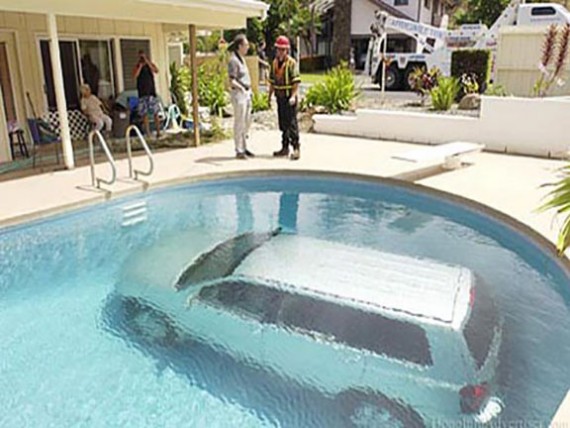Insurance in a Nutshell…. Auto & Home…. Do you Rent or Own?
We’ll look at the two policies you need separately and then discuss the benefits of having each with the same company.
Firstly though, ask what the A. M. Best rating is of the company giving you the quote. If it’s not A- or better, ask for a different company. This is a financial stability rating and C rated companies may go out of business…which doesn’t mean there would be no coverage for you but does cause lots of problems. Companies got together a long time ago and agreed to cover each other in the event someone experienced a bankruptcy, but it would mean you’d have to wait for the State to sort out which companies were going to take which policy holders and if you’re having a claim in the middle of ABC Insurance companies bankruptcy, it’d be a miserable experience. You’d also likely lose any premium refunds, might not be able to pay a premium on time, etc..
Homeowners policy HO-4 is for someone renting an apartment… a condo is a different policy. A home is an HO1, HO2 or HO3. There are other types but this article is intended for basic, not exotic needs. If you own a condo, it’s a different ISO number. Insurance Services Office. Condos are HO6.
For insurance products, there is an organization called the Insurance Services Office (ISO) which coordinates with Insurance companies and provides universal policy c overages and form numbers. So, at the basic level, “every” company provides the same coverage under the same form number. Some companies try to differentiate themselves and will add some extra coverage that names a peril which makes people, go, “Wow, that could happen, I better be covered for that…” but that “something” doesn’t actually happen very often.
Apartment insurance is known as Renter’s Insurance, it’s designated as an HO-4.
There are 2 sides to the HO-4.
Liability coverage
One portion of liability provides coverage for things that might happen when someone visits and trips and falls and has medical bills. (Nobody is angry, nobody is suing, may or may not be negligence) This is known as Medical Payments. Insurance companies provide a small dollar amount ( $1000 to $5000) that pays regardless of fault….if an incident happens at your premises…. You can have your insurance company pay your friends medical bills up to “that” amount.
The other side is actual liability coverage. Liability is provided for things that happen at your premises but this coverage also follows you wherever you go. If you trip and throw a bowling ball where people are sitting rather than down the lane, there is coverage for that. *Note: if you meant to bean someone, then you’d get defended at best. Liability does not cover intentional actions unless they were reasonably justified. Like you can punch someone out in order to defend yourself and they’ll cover you but you can’t just punch someone because you hate their stinking guts. In more normal situations, if you are at fault, the company will provide you with a legal defense and / or make a payment on your behalf. The limit of coverage here is dependent upon what you select.
Select a liability limit that is always equal to or greater than your net worth. In your case, since you’re on Steemit, I’d presume you have gumption….so if you don’t have much net worth but you do have expectation of making quite a bit of money in the future, your future net worth is what you take into account. The minimum is $ 100,000. Going to $ 300,000 should only cost you a few dollars extra. If you need more coverage than that, you should consider adding an umbrella liability policy. Defense cost are not included in this limit, defense cost is normally unlimited.
Property damage:
If you are renting, you will buy an HO4. Here you want to select a dollar value that covers the total replacement cost for everything you own… all your clothing, memorabilia, entertainment equipment, etc.. Whatever limit you select, 10% of that follows you when you travel. So, if you have $ 10,000 worth of stuff right now, when you travel, there’s $ 1,000 for your suitcase, etc..
Jewelry can be specifically listed. Do that if you have expensive pieces because it provides additional coverage over what is covered by the basic policy. Most importantly with scheduled jewelry coverage, you can bend over the boat to help a friend get in the boat and there’s coverage for when your ring slips off and falls to the bottom of the lake. The ring is not “lost,” you know where it is…it’s just irretrievable. Scheduling provides coverage for the really unusual.
Inside the property section is the ability to have a claim adjusted on two different value levels. One is ACV, actual cash value. ACV means that if you lose your wardrobe in a fire, the company will pay to replace your blue jeans with a used pair of blue jeans. ACV sucks. Think in terms of the value clothing brings at a garage sale.
The other option is to pay a bit more and get “Replacement Cost” coverage. Argument solved, now you only find yourself negotiating with the company over what the jeans cost new, to replace at that moment in time.
Review:
Demand an A rated company.
Ask how much each portion of the policy cost, do not accept a blanket quote.
Get liability limits of at least $ 100,000 even if you’re destitute.
Increase the medical payments portion from $ 1,000 to something higher if you have clumsy friends and / or will be entertaining frequently.
If you think you should only pay if you were at fault, ask if you can do away with Medical Payments, some companies allow this.
Buy more property coverage than you think you need because when you start making money, you’ll buy stuff.
ABSOLUTELY get replacement cost endorsed onto the policy.
Some companies will offer you a slew of “extra” c overages that sound awesome but rarely happen, so get them, but don’t pay much for them.
Auto Coverage….
Auto liability is similar to the homeowners but is divided into per person and per occurrence. Most of the time, it’ll look like 100/300/25.
The 1st number is the per person limit. The 2nd number is per occurrence. The 3rd number is a separate type of liability known as Uninsured Motorist and / or Under Insured Motorist.
For now, you probably need the 100/300. As a side note though, you can request a single limit of liability which does away with the per person limit. This will cost a few dollars extra and may or may not be something you want to do.
Liability concerns are like the Homeowners section for the most part except the opportunity for a catastrophic occurrence is much higher.
UM & UIM
Uninsured motorist coverage is where someone hits you….but doesn’t have coverage. It pays your medical bills and personal injury….. for their mistake… UIM is when someone damages you but doesn’t carry enough coverage to make you whole again…. You’d end up collecting from them to the limit of their policy and then you’d collect from your company for the extra… up to the policy limit. You might be able to increase this limit but check the cost…. It’s worth doing but depends on the cost.
Think in terms of the uncovered medical expenses If you’re just beginning adulthood, for most of us, a $ 10,000 hit to right then would put you in a deep hole that might take a year to save your way out of…
Physical damage coverage on your vehicle.
Coverage comes two ways with different charges related to the expected expenses.
Comprehensive: This covers you for a tree falling on your car, for a deer collision, for your windshield cracking when you pour water on it to get rid of the ice. Generally, this is inexpensive and you should have a low deductible…. For most vehicles, windshields only cost like $ 400 or so, hardly ever more than $ 1,000 so a deductible of $ 100 to $ 250 will probably be the best bang for the buck.
Collision: This covers you for damage to your vehicle because of a collision. No matter who is at fault, this pays to put your vehicle back the way it was…. This is an ACV coverage, it pays to put you back the way you were…. If the vehicle is totaled, it pays to replace a vehicle the same age as yours and in similar condition to yours prior to the accident.
Liberty Mutual is making a big deal about their replacement cost coverage, you’ve seen the ads on TV. I don’t know what they charge for this, but it’s a lot. Great commercial, limited utility in real life.
Should you buy your coverages separately or both from the same company?
If you save money buying coverage separately and it’s enough money to justify your time dealing with different companies, then buy separately. The “bundling” discounts you see advertised on TV are marketing ploys. If some company can do both coverages for nearly the same as you can find separately, then that’s awesome and you should buy from them…. But if it’s not all that close, then buy separately.
Companies rotate in and out of investments and they do so in such a manner that XYZ will have low rates this year and high rates next year. Sometimes ABC is experiencing a different claims cycle, made better investment choices, etc.. Sometimes, they just decide to focus on a particular coverage type this year and you can take advantage of them “buying” your business.
Here’s the reason to buy together if you can….
There are situations where it is very difficult to tell which company should be paying the claim. Say you and a friend run out to your car to go get a donut and the friend slips as they open the door to your car and breaks their leg. Is that a claim the auto policy should pay or is that a Homeowners claim?
The other reason to buy from the same company is that right now, you’re likely a small premium (because when we’re young, we tend to have inexpensive cars and small homes) and buying two policies from the same company or at least the same agent, makes you more important in their eyes and you’ll likely get better service.
Earthquake coverage…. If it isn’t expensive, buy it. It’ll come with a deductible that is a percent of the entire claim but compared to being wiped out……who cares.


Excellent